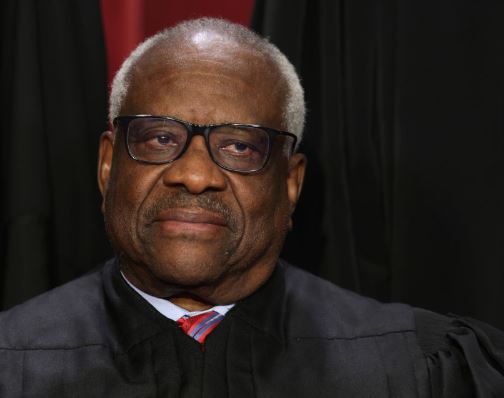AOC Files Articles of Impeachment Against Supreme Court Justices Clarence Thomas and Samuel Alito

In a bold political move, Representative Alexandria Ocasio-Cortez (AOC) has filed articles of impeachment against Supreme Court Justices Clarence Thomas and Samuel Alito. The move has sent shockwaves through the political landscape, igniting debates about judicial accountability and the balance of power.
Allegations and Motivations
AOC’s decision to file articles of impeachment stems from allegations of ethical misconduct and potential conflicts of interest involving the two justices. She has cited concerns over their impartiality in recent rulings and their failure to recuse themselves from cases where they had potential conflicts. The allegations suggest that Thomas and Alito’s actions undermine public trust in the judiciary and violate the principles of judicial ethics.
Political Reactions
The impeachment filings have elicited strong reactions from both sides of the political spectrum. Supporters of AOC praise her for taking a stand against what they perceive as judicial overreach and corruption. They argue that holding justices accountable is essential for maintaining the integrity of the Supreme Court.
Conversely, critics accuse AOC of politicizing the judiciary and attempting to undermine conservative justices. They argue that the impeachment efforts are an overreach and could set a dangerous precedent for future political retaliation against judges based on their rulings.
Legal and Constitutional Implications
The impeachment of Supreme Court justices is a rare and complex process. The U.S. Constitution allows for the impeachment of federal officials, including justices, for “high crimes and misdemeanors.” However, the process requires a majority vote in the House of Representatives to impeach and a two-thirds vote in the Senate to convict and remove from office. Historically, no Supreme Court justice has ever been removed through impeachment.
Impact on the Judiciary
The filings by AOC have raised questions about the independence and future of the judiciary. Critics warn that such actions could erode the separation of powers and lead to increased politicization of the courts. Supporters argue that ensuring ethical conduct and accountability among justices is vital for preserving the rule of law and public confidence in the judiciary.
Public Opinion and Debate
Public reaction to the impeachment filings is deeply divided. Some view it as a necessary step to address perceived ethical violations, while others see it as an unjustified attack on conservative justices. The debate has fueled broader discussions about the role of the Supreme Court, judicial ethics, and the mechanisms in place to hold justices accountable.
As the impeachment process unfolds, all eyes will be on the House of Representatives to see if the articles gain sufficient support to proceed. If the House votes to impeach, the case would move to the Senate for trial. Given the high stakes and the divided nature of Congress, the outcome remains uncertain
The move by AOC to file articles of impeachment against Justices Clarence Thomas and Samuel Alito marks a significant moment in American political and judicial history. The proceedings and their outcomes will likely have lasting implications for the relationship between the legislative and judicial branches, as well as for the broader conversation about judicial accountability in the United States.





